Native American cultures have much to offer the Catholic faith, especially with regard to care for God’s creation. With healing and dialogue, we can take steps to deepen our faith and build up God’s kingdom.
When Pope Francis visited Canada in July 2022, it was, at its core, a mission for healing. “On this first step of my journey, I have wanted to make space for memory,” the pope said in an address during a meeting with Indigenous peoples in Maskwacis, Alberta. “Here, today, I am with you to recall the past, to grieve with you, to bow our heads together in silence, and to pray before the graves. Let us allow these moments of silence to help us interiorize our pain. Silence. And prayer.”
The pain Pope Francis referred to stems from the long, sad history of abuse and trauma inflicted on Indigenous youth in Canadian government residential schools. Many of the schools were run by Catholic entities, and, as the pope pointed out in his address, the Church holds a significant amount of the blame for its participation in these institutions of cultural assimilation.
After a lamentable colonial history, the effects of which are still felt today, we need to develop new pastoral and theological ways of being Church. When colonizers and missionaries came to North America, they expected Indigenous peoples to become Christians and abandon their customs and traditions. They often did not seek to bridge the worldviews or understand Indigenous beliefs in the creator. It simply flies in the face of spreading the Gospel as Jesus showed us.
Seven Generations
The Canadian Catholic Church participated in the Truth and Reconciliation Commission, which toured the country from 2008 to 2015 and made 94 calls to action. However, there are many outstanding issues. Specific calls to action for parishes included the following:
- “We call upon Church parties to the Settlement Agreement to develop ongoing education strategies to ensure that their respective congregations learn about their church’s role in colonization, the history and legacy of residential schools, and why apologies to former residential school students, their families, and communities were necessary.”
- “We call upon leaders of the Church parties to the Settlement Agreement and all other faiths, in collaboration with Indigenous spiritual leaders, survivors, schools of theology, seminaries, and other religious training centres, to develop and teach curriculum for all student clergy, and all clergy and staff who work in Aboriginal communities, on the need to respect Indigenous spirituality in its own right, the history and legacy of residential schools and the roles of the Church parties in that system, the history and legacy of religious conflict in Aboriginal families and communities, and the responsibility that churches have to mitigate such conflicts and prevent spiritual violence.”
Clearly, the Canadian Catholic Church was thrilled to welcome Pope Francis’ visit in July 2022 to three Canadian cities. However, while his meetings with Indigenous communities may have spurred pockets of greater interest and commitment by Indigenous Catholics and allies alike, resistance remains, and change is slow.
The lingering effects of the abuses at the residential schools call to mind a concept called the “seven generations,” which is shared among different Indigenous peoples. It’s about understanding that whatever we do right now doesn’t only affect us or our children. It’s a ripple effect that goes on for generations.
The Honorable Justice Murray Sinclair, chair of the Truth and Reconciliation Commission, points to education as the key to reconciliation, stating, “Education got us into this mess, and education will get us out of it.” Understanding the history of interaction and relations between Indigenous and non-Indigenous people, specifically in the context of the Roman Catholic Church’s involvement, is deeply important. This understanding should come from a place of humility, where we’re open to asking questions and having discussions that promote mutual sharing and hope.
Sacramental Creation
I had the privilege of participating in the Indigenous Pastoral and Lay Ministry Education program, an experience that left a profound impact on me. I gained a deeper understanding of the complex relationship between Indigenous communities and the Church. I also deepened my appreciation for ministry that proposes and accompanies, seeking Christ’s face continually.
Through this learning experience and an exploration of Franciscan theology, I started pondering the nature and essence of reconciliation. It led me to consider how the Catholic Church might embrace a more theologically intercultural approach to further the cause of reconciliation with Indigenous peoples. One such opportunity is the alignment between the Franciscan perspective, which values nature as an ongoing revelation of God, and Indigenous peoples’ deep connection with the land as an essential part of their identity.
What if we consider nature as a sacrament—not instead of or superior to any of the seven sacraments—but in another way in which God’s grace, presence, and life is present to the world?
Creation can be considered a sacrament in the sense that it is a sign of God’s loving presence in the world and a reflection of God’s gift of creation to humanity. Many Indigenous cultures view the land not simply as a physical place, but as a living entity with its own spirit. This view of the land as sacred is often woven into the fabric of Indigenous cultures through storytelling, song, dance, and other forms of cultural expression.
For Indigenous people, this spiritual connection with creation is a means of expressing and experiencing their relationship with the divine, and it serves as a source of spiritual sustenance, healing, and renewal. In this sense, the Indigenous connection with creation can be seen as a sacrament, a physical manifestation of the divine, and a means of receiving grace and blessings.
The Intersection of Franciscan Spirituality and Indigenous Culture
Sts. Francis and Clare saw themselves in creation and in relationship with all of creation—beholding its beauty as vestiges of God. They experienced creation as infused with God’s grandeur and beauty, causing awe and wonder. Francis and Clare’s lives demonstrate how respect and trust-building—major tenets of intercultural theology—involve respecting all of creation and trusting God will be revealed through it. It helps us to not only be present to that potential, but also humbly open to whatever God has in store. If we view creation in the Franciscan way and acknowledge that we share the earth with Indigenous peoples, I believe that this will help to bring about genuine reconciliation.
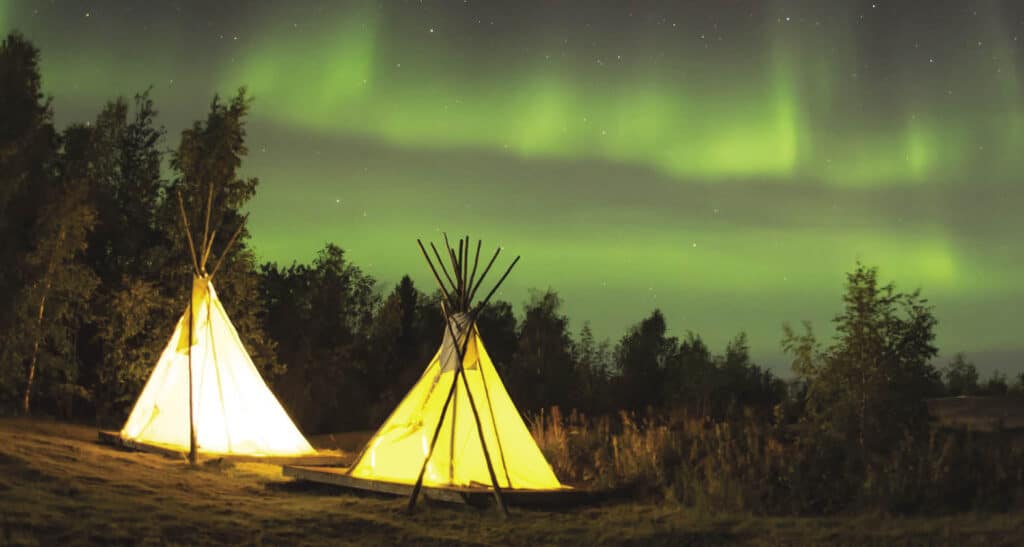
Creation can be considered a sacrament
in the sense that it is a sign of God’s loving
presence in the world and a reflection of
God’s gift of creation to humanity.
One of the challenges that must be addressed is the skeptical view some Christians have of seeing creation imbued with God. For one thing, it’s important to avoid seeing Indigenous customs as superstitious. Pope Francis’ apostolic exhortation “Querida Amazonia” (“Beloved Amazon”) teaches that there is no place where Jesus is not already present and active. So we need to have the humility to discover Christ in different cultures and deconstruct our own biases and misunderstandings.
This truth was driven home for me in November 2021 during a profound experience of participating in a smudge ceremony right before Mass. Smudging is a practice where dried sage is burned, and its smoke ritually “washes” over the body in a sacred circle. The significance of cleansing the soul was a powerful way of preparing for Mass, and it enhanced my understanding of this Indigenous ceremony. When we can accept that no culture, political paradigm, or perspective can contain God, we can more readily love God and others in all their expressions.
Unified in God’s Kingdom
Developing a more robust theology that includes and invites the contributions of Indigenous Catholics will lead to a wider understanding of faith practices in society and the Church in at least two ways. First, we humble ourselves and listen deeply in order to learn and connect. We demonstrate a new way of engaging as Church—not one where the institutional Church has all the answers, but as an embrace of vulnerable repentance, learning, and openness to change and transformation.
Second, instilling a deeper connection with the land is new for the Western Catholic Church. This approach calls believers to not only care for the land, but also live as part of it and love it as a brother and sister. Seen in this way, which is Franciscan to the core, land is truly sacramental.
As you consider all of this in terms of your own context, what is your next step to embracing unity and humility with diverse groups of people in your parish community? Reflect on how you might move away from building a parochial kingdom and instead collaborate with others to build God’s kingdom. In so many ways, challenging the status quo in any organization (including the Catholic Church!), is a labyrinth of starts and stops. But when the Holy Spirit is part of this challenging work, God will unify us so that we “may all be one” (Jn 17:21).
It won’t be perfect; the process is complex work, but God makes it possible. May God bless our humble efforts and help us to live in the divine mystery so that the Holy Spirit can do the healing and reconciling work as we walk together.
To learn more, check out our article on Franciscans and Native Americans.


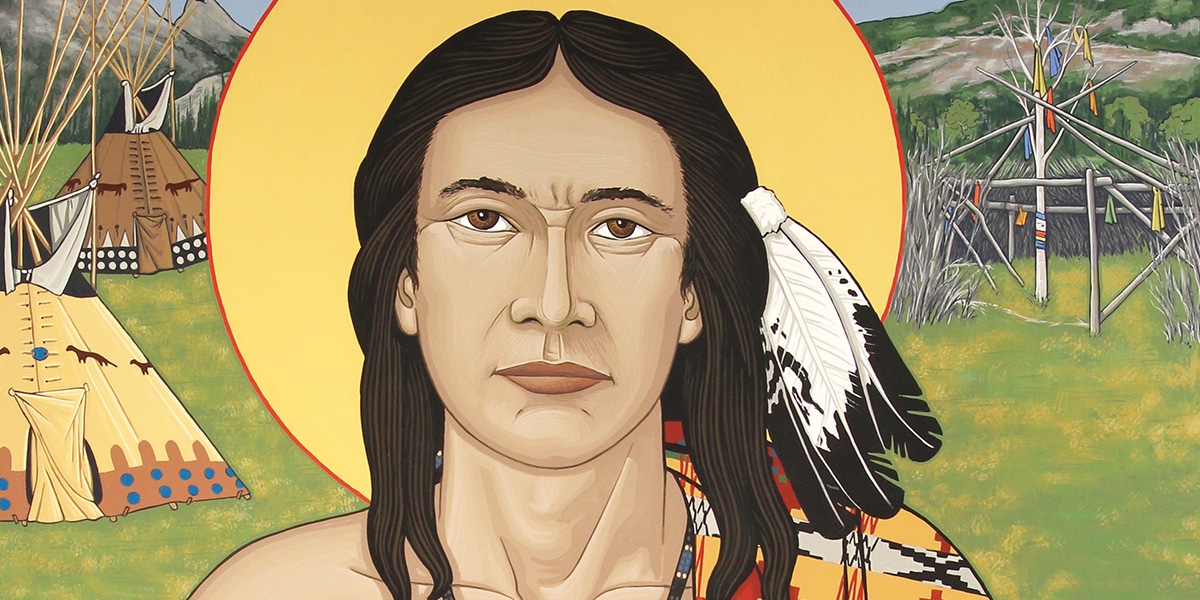


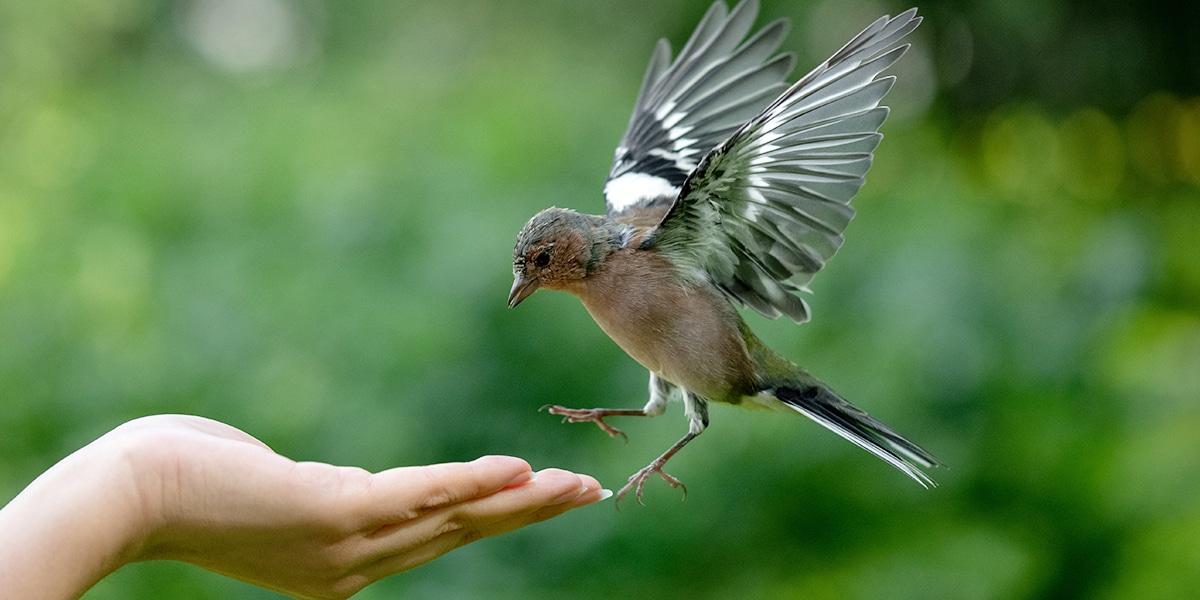
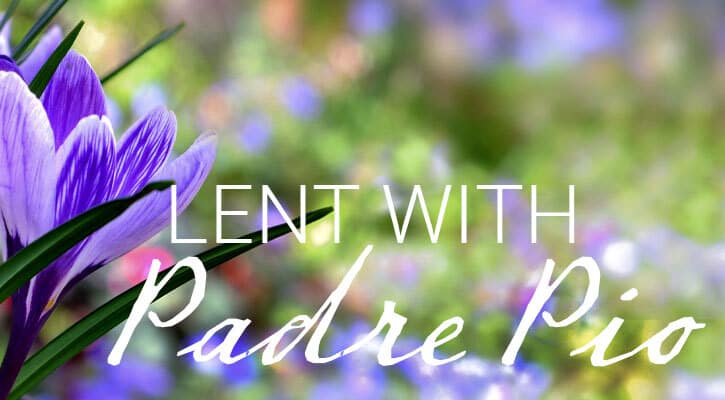
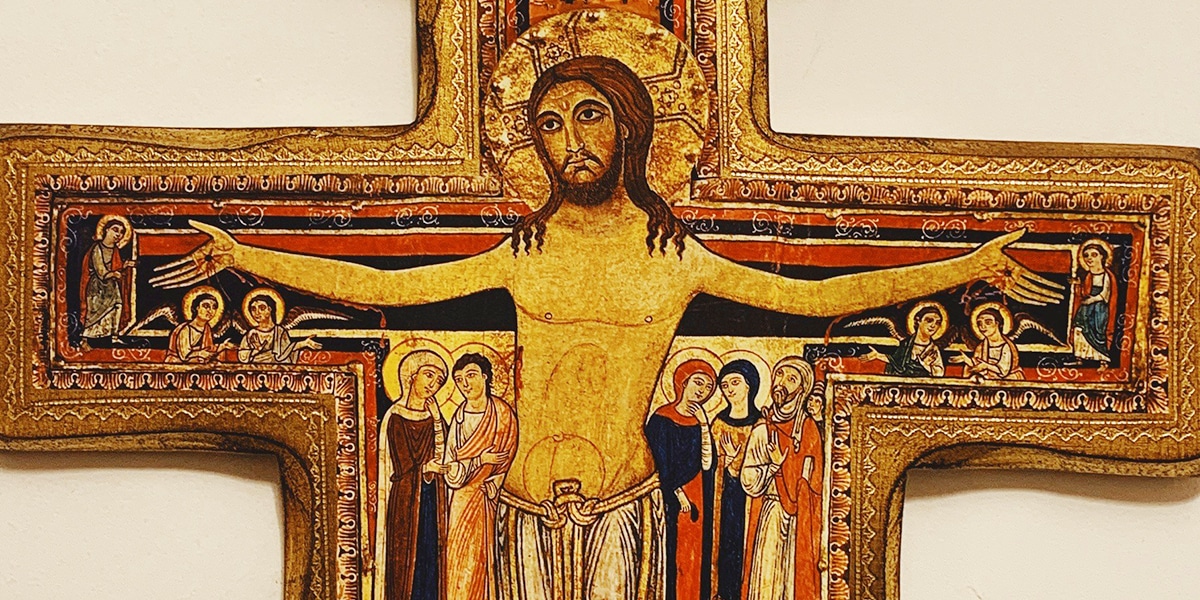

4 thoughts on “Healing with Our Indigenous Brothers and Sisters ”
Wish respect, are we not called to spread the Good News and to tell people about Jesus and the Eucharist?
Yes, absolutely we are called to spread the Good News and tell people about Jesus and the Eucharist. Reconciling with Indigenous Catholics and other diverse expressions of Catholicism around the world, especially those who have been alienated from the church, finding ways to share the Gospel and Eucharist together is part of this calling.
This was excellent as a OFS member this spoke to me deeply as I find nature a powerful sacrament for me which brings me peace and healing along with my two dogs.Thanks again Adrienne
Thank you for this wonderful article. I am touched by your words considering the sacramental aspect of creation. The Franciscan tradition is so rich in honoring that. There is so much in the indigenous traditions that the Church can learn from and be enriched by.